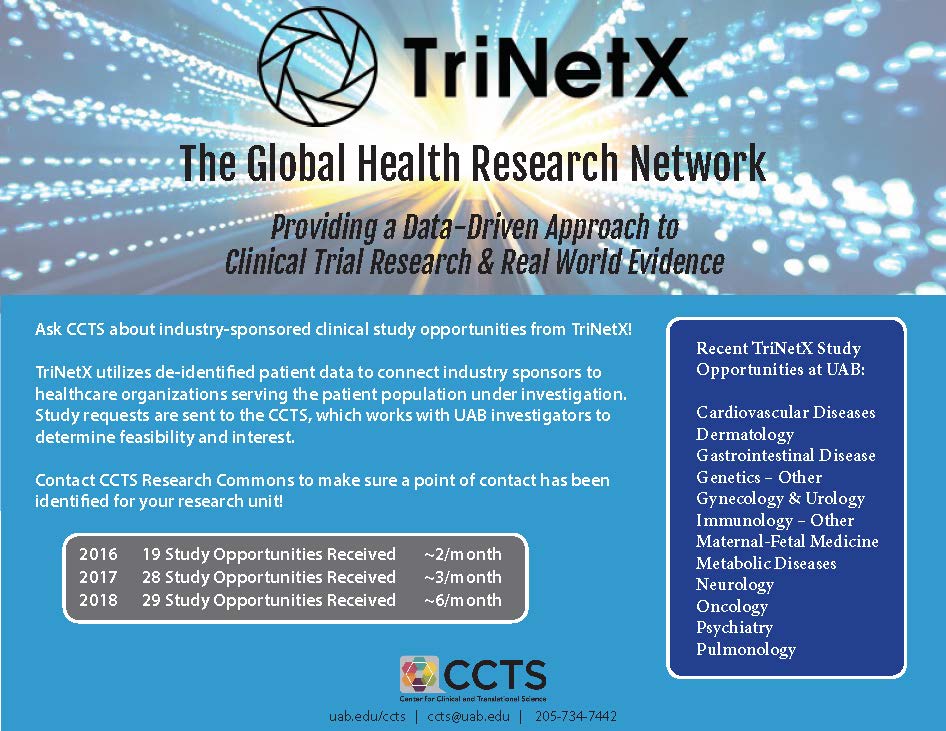One of the most common reasons a clinical trial fails is poor recruitment—it can be difficult to find enough patients who meet a trial’s eligibility criteria. To address this challenge, the CCTS Hub joined TriNetX, a clinical data network of healthcare providers, pharmaceutical companies, and contract research organizations that connects clinical researchers to trial opportunities based on the patient populations they wish to study.
TriNetX uses the i2b2 (Informatics for Integrating Biology and the Bedside) framework, which is designed to enable enterprise-wide searches of de-identified health information. Researchers can use i2b2 to determine aspects of study feasibility by identifying whether a sizable number of patients exist that meet their study inclusion/exclusion criteria (CCTS offers a hands-on i2b2 training that teaches this and more). The TriNetX network does the same thing but across several dozen linked institutional i2b2 instances, including those at CCTS Partners UAB and Tulane, to provide query capability into the data of potentially millions of patients.
TriNetX increases clinical and translational research opportunities in two ways:
-
When a collaborating sponsor would like to stand up a clinical trial, it approaches TriNetX and requests a query of the electronic health records of all participating academic medical institutions via i2b2. Those sites with sufficient patients that meet eligibility criteria are contacted to invite participation. When UAB is identified as having a sufficient patient population for a given trial, the CCTS Research Commons fields the request, reaching out to the investigator-base at the Hub to identify potential site leads.
-
TriNetX also provides a foundation to support collaboration with peers and other member institutions. Using the same data framework and connections, academic sites can exchange data with each other to promote multisite investigation. The CCTS has created such a network with the University of Kentucky and is in the process of establishing similar capacities with other CTSA Hubs, including Emory, Medical University of South Carolina, and University of Arkansas. Additional sites are expected to come online throughout 2017, including CCTS Partners.
Advantages
Through TriNetX, CCTS investigators benefit from increased opportunities to participate in industry-sponsored clinical trials that are feasible and of scientific interest. Since going live on the TriNetX network in December 2015, the CCTS Hub has experienced a steady increase of trial opportunities, from one a month to weekly inquiries. These studies cover a range of diseases, including cancer, neurologic conditions, diabetes, inflammatory conditions, and genetic diseases. As a result of this partnership, trials have begun in Multiple Sclerosis and Nasopharyngeal Cancer under the leadership of Dr. Khurram Bashir and Dr. Lisle Nabell, respectively. Several other trials are pending.
Those trial units or investigators who are interested in learning more about trial opportunities are invited to contact Research Commons (



